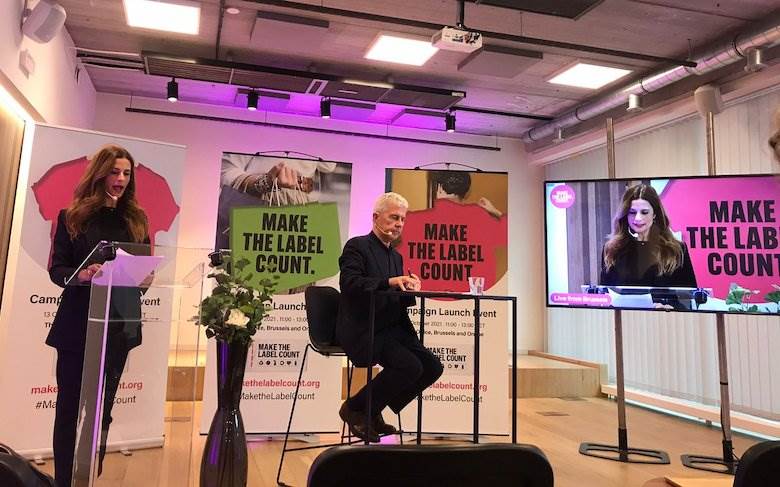Campaign calls for accurate sustainability labels

A new international coalition of organisations has launched a new campaign called Make the Label Count (MTLC).
At a launch event in Brussels on October 13, the group, which includes think-tanks, campaign groups and representative bodies of wool, cotton, silk and cashmere producers, called on the European Commission to ensure accurate sustainability labels on clothing.
It said a transition is taking place in the European Union, shifting to a climate-neutral and circular economy in line with the Green Deal agenda. For this, products must be designed not only to be more energy-efficient, but also more durable, reusable, repairable, and recyclable.
This transition is particularly important for the fashion and textile industry, MTLC said, because of its environmental footprint. To empower consumers to make greener purchasing decisions, the European Commission is proposing a mandatory consumer-facing labelling scheme for clothing and footwear.
The European Commission’s method for assessing the environmental impacts of clothing is called the Product Environmental Footprint (PEF) method. But the Make the Label Count coalition highlights that the methodology is incomplete and that without correction it risks misleading well-intentioned consumers.
“The European Commission initiated the PEF in 2013. Since then, we’ve seen major advances in research and knowledge around the environmental impacts of the textile industry, but these aren’t included in the current methodology,” said Dalena White, Make the Label Count co-spokesperson and secretary general of the International Wool Textile Organisation (IWTO). “If the Commission proceeds to mandate labelling without addressing these limitations, the fashion and textile industry won’t achieve the green transition the EU wants to see.”
She went on to say that consumers needed “reliable information” to show clearly if clothes are made from renewable and biodegradable materials, whether they’re reusable and recyclable, and if they shed microplastics.
“Only then will we achieve a clothing sustainability label that gives consumers credible information that substantiates green claims and prevents greenwashing,” Ms White said.
Her co-spokesperson, fashion sustainability campaigner Livia Firth (pictured), said at the launch event that she and her colleagues had been pushing for better labelling on fashion items for years. “Our industry has an unacceptable impact on our planet and consumers do not want to be complicit,” she warned.











